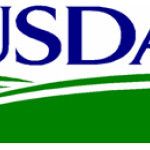- Branche: Government
- Number of terms: 41534
- Number of blossaries: 0
- Company Profile:
The Omnibus Budget Reconciliation Act of 1990 mandated that deficiency payments not be made on 15% of a farm’s crop acreage base, called normal flex acres. The acreage could be planted to any program crop (called flexing), but not fruits and vegetables. An additional 10% of the farm’s base acreage could be flexed at the option of the operator. Flexing did not diminish the crop acreage base of a farm. The FAIR Act of 1996 effectively provides total flexibility among all commodities, except for fruits and vegetables.
Industry:Agriculture
Lowland and relatively flat areas adjoining inland and coastal waters, including floodprone areas of islands. This land includes, at a minimum,, those areas that are subject to a 1 percent or greater chance of flooding in any given year.
Industry:Agriculture
Provides for contracts for producers on farms that have contract acreage under Title I of the FAIR Act of 1996 that are frequently flooded. Individuals can receive up to 95% of transition payments and projected crop insurance payments in lieu of market transition payments. In return, producers must comply with swampbuster and conservation compliance provisions and forego future conservation program payments and disaster payments. Though authorized, this program has not yet been implemented.
Industry:Agriculture
A quantity provision in a fruit or vegetable marketing order that does not change the total quantity that can be marketed during a season, but rather controls the rate or time period that quantities can be shipped to markets by means of shipping holidays and prorates.
Industry:Agriculture
A type of cigarette tobacco, it and burley tobacco account for more than 90% of U.S. tobacco production. Flue-cured tobacco production is limited by national marketing quotas and acreage allotments, and is eligible for nonrecourse price support loans. Flue-cured production is centered in North Carolina.
Industry:Agriculture
In federal milk marketing orders, the Class I differential is the amount added to the basic formula price to determine a region’s minimum price for milk used for fluid (drinking) purposes.
Industry:Agriculture
A national program authorized by the Fluid Milk Promotion Act of 1990 (Fluid Act) with the purpose of increasing consumption of milk and dairy products and reducing milk surpluses by developing generic advertising programs. The program is funded by a mandatory 20-cent per hundredweight assessment on processors for all fluid milk processed in the contiguous 48 states and marketed commercially. The program is administered by the National Fluid Milk Processor Promotion Board. It should not be confused with the dairy farmer funded Dairy Promotion Program. The FAIR Act of 1996 extends the Fluid Milk Promotion Program through 2002.
Industry:Agriculture
This is the designation given to Subtitle H of Title XIX of the Food, Agriculture, Conservation, and Trade Act of 1990. Subtitle H authorized the establishment of a national milk processor check-off program for fluid milk promotion. The program is funded through a 20-cent per hundredweight (cwt.) assessment on all milk processed for fluid consumption. The Act required USDA to conduct a referendum among fluid milk processors to determine if a majority favored implementing the program. The Fluid Milk Order was approved by processors and became effective December 10, 1993.
Industry:Agriculture
Any liquid substance applied directly to the foliage of a growing plant for the purpose of delivering an essential nutrient in an immediately available form.
Industry:Agriculture
Any substance or mixture of substances other than the basic foodstuff present in a food as a result of any phase of production, processing, packaging, storage, transport or handling. USDA allows food additives in meat, poultry and egg products only after they have received Food and Drug Administration safety approval. Food additives are regulated under the authority of the Federal Food Drug and Cosmetic Act and are subject to the Delaney Clause.
Industry:Agriculture
